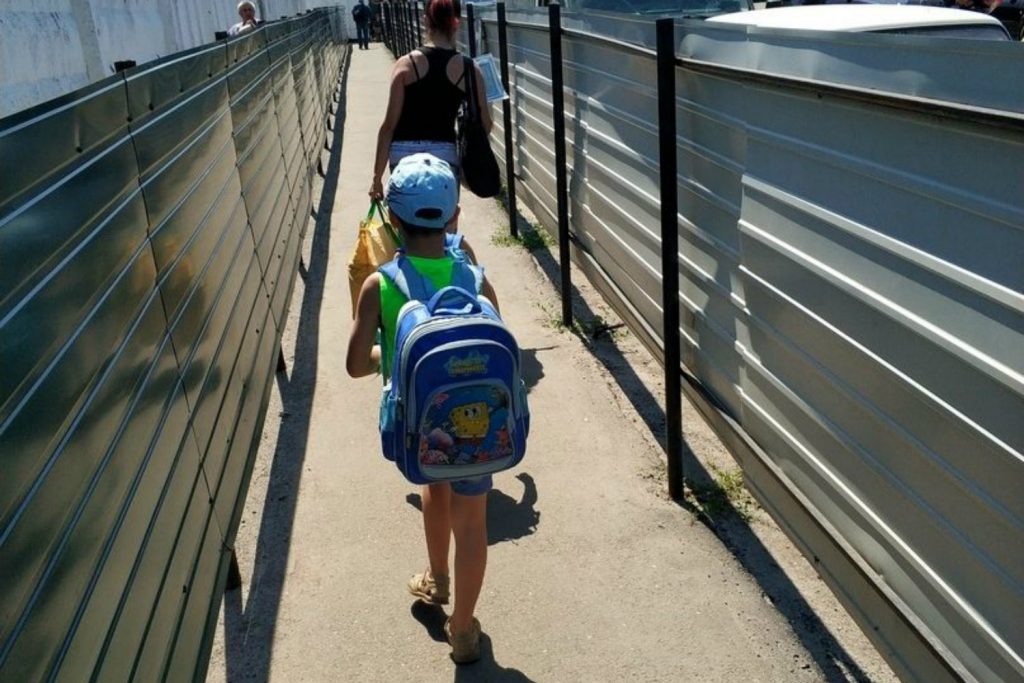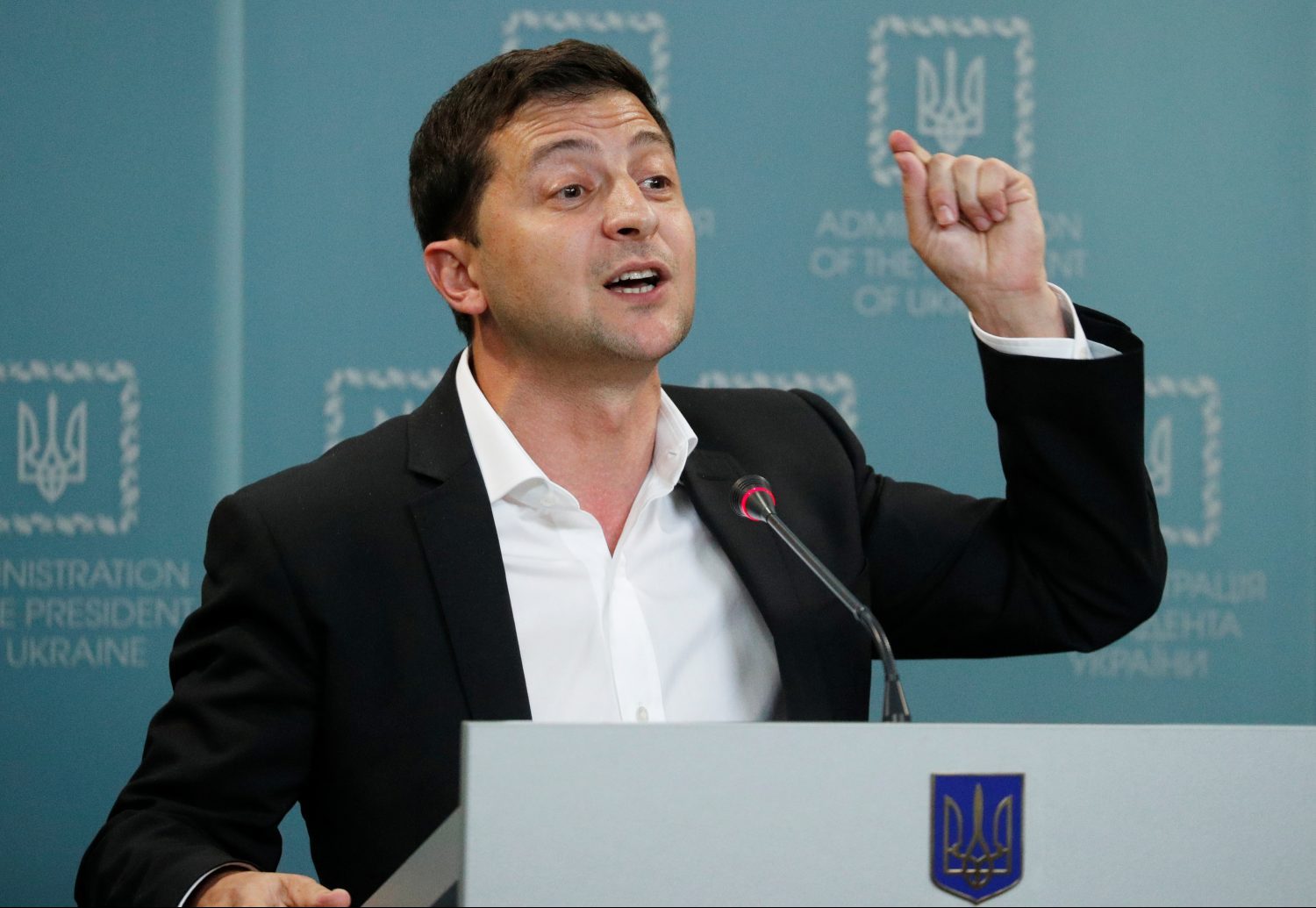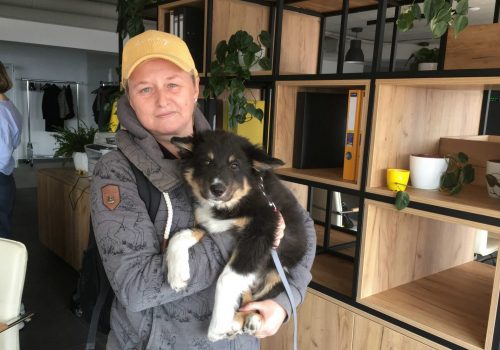Children born in the occupied territories of Ukraine face a real risk of statelessness. According to the UN High Commissioner for Refugees, only 43 percent of children born in the non-government controlled territories of Donetsk and Luhansk oblasts have obtained Ukrainian birth certificates.
The remaining 57 percent of NGCA children born without proper birth registration by the Ukrainian authorities may be unable to qualify for a Ukrainian passport at age 14. Of course, NGCA children could obtain a passport issued from the self-proclaimed “People Republic’s,” but these are not recognized by Ukraine and are of limited utility.
Statelessness is an issue in Ukraine, and one on the rise. The UNHCR estimates that there are more than 35,600 stateless persons and persons at risk of statelessness in Ukraine. In addition, there are more than 40,000 children who were born in the NGCA that face problems with proper documentation.
Children born in the NGCA receive a birth certificate issued by the self-proclaimed “People Republic’s,” which is only recognized by Russia as valid. If a child fails to obtain a Ukrainian birth certificate and cannot confirm their Ukrainian citizenship, the child will remain in limbo. This is the nightmare scenario.
In 2018, the Ukrainian government adopted a law which should fix the problem. The law would enable the Ukrainian authorities to recognize birth certificates issued by hospitals in the non-government controlled areas in Donetsk and Luhansk.
However, no administrative procedure was introduced to implement the change. Thus, an NCGA child must undergo a cumbersome court procedure to obtain a Ukrainian birth certificate, and many families cannot afford the time and effort required.
Stay updated
As the world watches the Russian invasion of Ukraine unfold, UkraineAlert delivers the best Atlantic Council expert insight and analysis on Ukraine twice a week directly to your inbox.
To obtain a birth certificate for NGCA children, a child’s representative needs to cross into the government-controlled area and apply at a civil registry office of the Ministry of Justice with the birth certificate issued either by the NGCA registry or hospital. Any civil registry office in Ukraine can handle the procedure, regardless the child’s place of residence, which simplifies the process. In general, people from the NGCA tend to approach civil registry offices closest to them.
Next, the registry office issues a written rejection. The child’s representative must then approach the court with the rejection, the medical records, and a claim outlining the case.
If the facts are in order, courts generally issue judgements that clear up an NGCA child’s status. In 1970, the International Court of Justice found that documents issued by an occupying authority must be taken into consideration by the courts if otherwise the rights of inhabitants of the mentioned territories would be violated or seriously restricted, and Ukrainian courts comply with this judgement.
Eurasia Center events

“Despite the relative simplicity of birth registration through the court procedure, the Kramatorsk civil registry is overwhelmed with applications for birth registration for GCA and NGCA-born children,” the head of the Kramatorsk civil registry office has stated. Kramatorsk is a city in the government-controlled area of the Donetsk region near the NGCA.
For NGCA families, a Ukrainian birth certificate comes with social benefits. The mother of a NGCA child who registers her child in Ukraine is entitled to social payments at birth and more for single mothers.
The process isn’t terribly complicated, but it still remains challenging for many people. Even though there is no court fee, it takes a few days for people to undergo the administrative and court procedures. Thus, the child’s representative needs funds to cover the costs for food, accommodation, and transportation while they wait.
Moreover, sometimes the physical limitations of a child’s representative can be a reason for not undergoing the birth registration procedure in the GCA. Thus, due to the physical and financial obstacles of child representatives to travel to the GCA, a majority of children born in the NGCA remain without proper birth registration.
To prevent the growth of statelessness in Ukraine, it is extremely important to implement the administrative procedure for birth registration for NGCA children as an alternative.
Anna Babko is an expert on statelessness at Right to Protection in Kyiv, Ukraine.
Editor’s note: The nonprofit organization Right to Protection” (R2P) provides legal assistance to the stateless and IDPs. R2P’s attorneys have provided primary and secondary legal aid for birth registration of NGCA children. R2P helped establish a template for the representatives of NGCA children to present in court in order to establish birth and the organization’s attorneys have helped dozens in court.
Further reading
Image: A child crosses at the “Mayorske” checkpoint in Donetsk region. Credit: R2P



